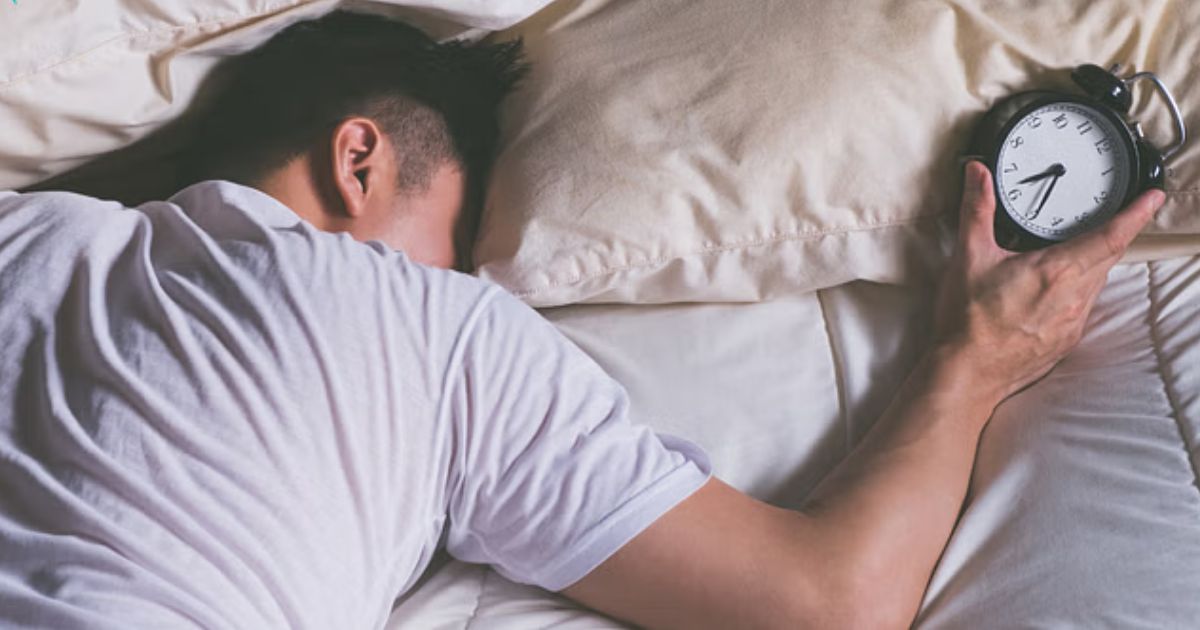A comprehensive study conducted by researchers at University College London has shed light on the intricate relationship between sleep patterns and depression. The findings suggest that individuals who consistently sleep for less than five hours each day face a heightened risk of developing depressive symptoms over time.
The study, spanning a period of 4 to 12 years, delves into the interplay between genetic factors and sleep duration, uncovering intriguing insights into how these elements converge to impact mental health.
The Complex Connection Between Sleep Patterns and Depression
Depression, a widespread and often debilitating mental health condition, has long been associated with disrupted sleep patterns. However, this research underscores the complexity of this connection. It highlights the fact that a genetic predisposition for short sleep duration significantly increases the likelihood of developing depressive symptoms over time.
One of the most remarkable aspects of the study is the role played by genetics in shaping this relationship. It was found that individuals who had a strong genetic inheritance for short sleep were more susceptible to experiencing depressive symptoms. This means that certain genetic factors can predispose individuals to both shorter sleep durations and an increased risk of depression.
Conversely, the study revealed that those with a genetic predisposition for depression did not necessarily exhibit shorter sleep patterns. This intriguing finding implies that while genes may be influential, they do not uniformly dictate the intricate dance between sleep and mental health.
Sleep deprivation is a pervasive concern in modern society. With the demands of work, family, and personal commitments, many individuals find themselves compromising on the duration and quality of their sleep. The consequences of this habit are far-reaching, as this study shows, extending beyond mere fatigue to encompass mental health.
The study’s results highlight that individuals who consistently sleep for less than five hours per night, regardless of genetic factors, are at a higher risk of developing depressive symptoms. This emphasizes the importance of recognizing the potential consequences of chronic sleep deprivation and the need to address this issue on a societal level.
The implications of this research are profound. Depression, which affects millions of people worldwide, can have devastating effects on one’s quality of life. By understanding the role of sleep in this mental health condition, researchers hope to pave the way for more targeted interventions and treatments.
It is important to note that this study does not establish causation. Rather, it reveals a strong correlation between insufficient sleep and an increased risk of depression. The precise mechanisms through which sleep and genetics interact to influence mental health remain subjects of ongoing research.
In light of these findings, early intervention becomes even more critical. Identifying individuals with a genetic predisposition for short sleep and depression could allow for tailored preventive measures and support systems. Additionally, addressing the issue of inadequate sleep at a societal level is imperative, as this can contribute to reducing the overall burden of depression.
The study also emphasizes the shared responsibility for mental health. It is not solely a matter of individual choices, but also of societal factors that contribute to sleep deprivation. Work-related stress, long commutes, and the constant demands of modern life can all play a role in limiting the amount of rest individuals are able to obtain.
As such, employers, healthcare providers, and policymakers all have a role to play in addressing the issue of insufficient sleep. Encouraging healthy work-life balances, flexible schedules, and employee well-being initiatives can make a significant difference in reducing the prevalence of chronic sleep deprivation.
The study conducted by researchers at University College London underscores the intricate relationship between sleep patterns and depression. While it does not establish causation, it provides compelling evidence of a strong correlation between insufficient sleep and an increased risk of depressive symptoms. The role of genetics in shaping this relationship further highlights the complexity of the issue.
As society grapples with the far-reaching consequences of inadequate sleep, it becomes increasingly vital to recognize the importance of early intervention, shared responsibility, and the need for comprehensive strategies to address sleep-related mental health concerns.
This research paves the way for a deeper understanding of the issue, offering hope for more targeted interventions and improved well-being for individuals at risk.


























